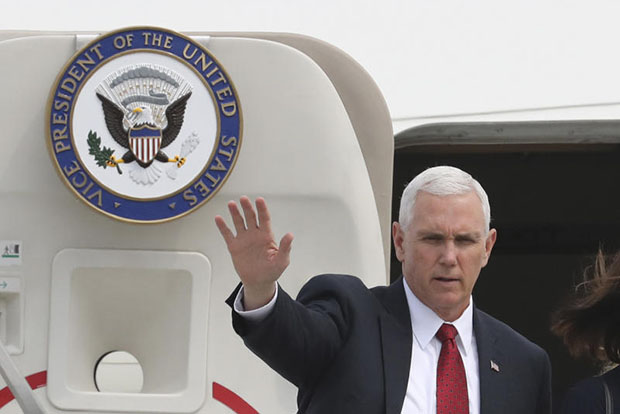
TOKYO -- US Vice President Mike Pence is traveling to Japan for talks expected to focus largely on trade with America's anchor ally in the region.
Concluding a visit to South Korea, Pence told business leaders in Seoul on Tuesday the administration is reviewing all trade agreements as part of its "America First'' policy.
"We're reviewing all of our trade agreements across the world to ensure that they benefit our economy as much as they benefit our trading partners,'' Pence told the American Chamber of Commerce in Korea.
White House officials said the economic meetings in Tokyo, with Deputy Prime Minister Taro Aso and other officials, are meant to forge a framework for future discussions after the U.S. withdrew from a Pacific Rim trade pact.
They will serve as the kickoff to the US-Japan economic dialogue that was announced by President Donald Trump and Prime Minister Shinzo Abe in February.
While Japan's trade surplus with the US is much smaller than China's, Trump has decried the imbalance, especially in auto exports.
In Japan, Pence's two main goals are to spur increased the US access to Japanese markets and strengthen Japanese foreign investment.
Both sides said they do not expect the talks in Tokyo this week to delve into sector-by-sector talks on trade.
But the meetings could indicate how forcefully the US will pressure Japan to further open its farm and automotive sectors.
Pence's advisers said the vice president would seek to make the case to Abe and Aso that the US rejection of the Trans-Pacific Partnership under Trump did not signal a US withdrawal from trade and economic development in the region.
As Indiana governor, Pence saw firsthand the impact of Japanese automakers Toyota, Honda and Subaru, whose factories employ thousands of people in his home state.